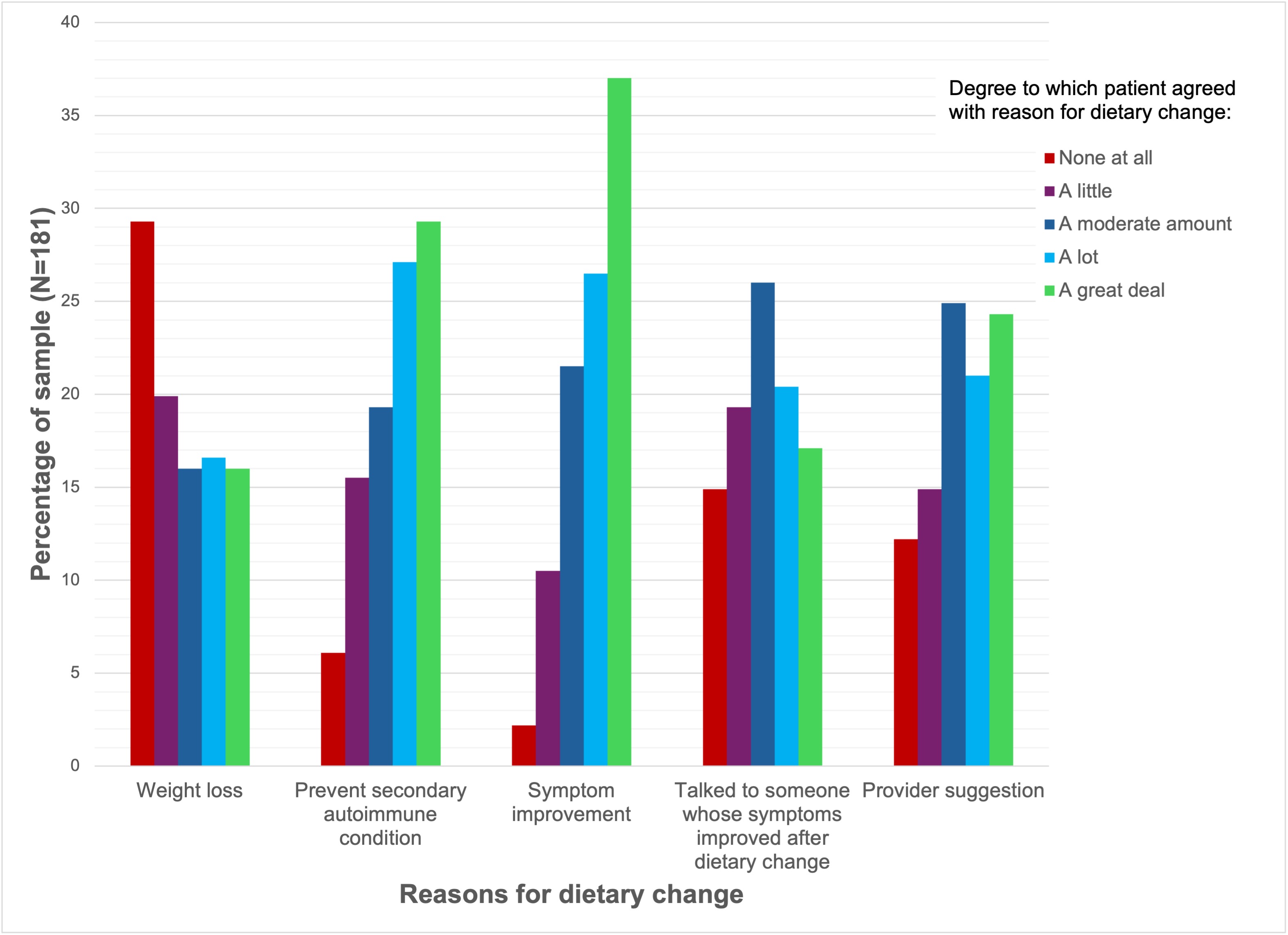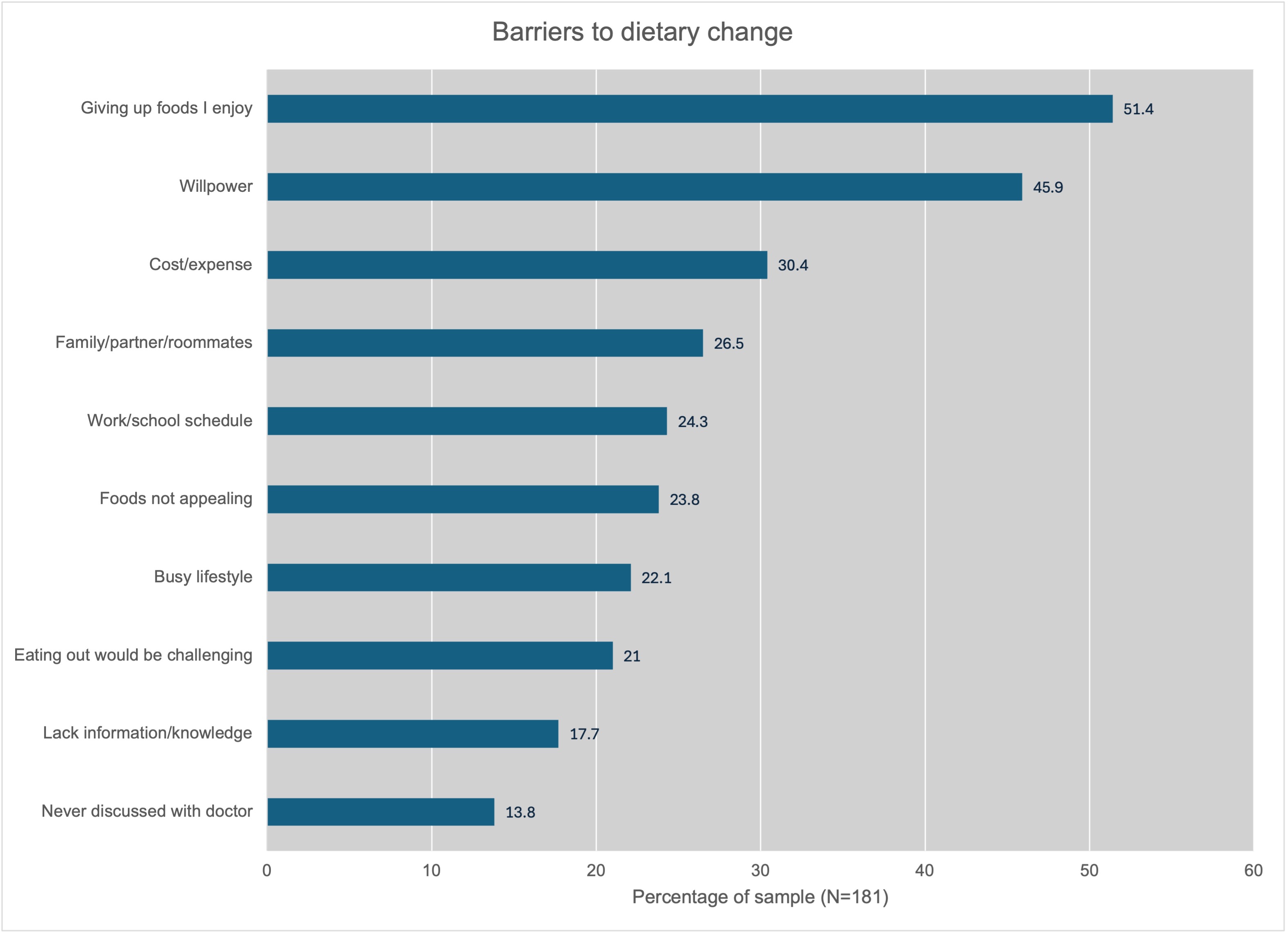Session Information
Session Type: Poster Session A
Session Time: 10:30AM-12:30PM
Background/Purpose: Dietary interventions may help manage inflammation and are considered for adjunctive treatment of rheumatic diseases. Our study aimed to explore patients’ behaviors and beliefs about nutrition in relation to their conditions. Additionally, we assessed their openness to dietary changes, identified both barriers and facilitators to these changes, and evaluated the provider’s engagement in discussions around diet.
Methods: This descriptive analysis of cross-sectional, observational survey data comprised 181 predominantly White adults (M±SDAGE=64±12 years, median level of education attained=Bachelor’s degree) with RA (n=108), PsA (n=22), and SLE (n=12). Participants were asked to self-report their interest in dietary change, dietary behavior, barriers and facilitators to dietary change and provider engagement via online questionnaire distributed by the Arthritis Foundation’s Patient Voices group.
Results: Nearly three-quarters of participants reported they contemplated improving their diet to better control autoimmune symptoms, though only 40% were currently eating a modified diet. The top 2 reasons for dietary change were symptom improvement and preventing a secondary autoimmune disease; bottom 2 reasons were weight management and talking to someone whose symptoms improved after dietary change (Figure 1). While participants indicated they were on average somewhat to very confident they would make these changes, several barriers to dietary change were endorsed (Figure 2), including “giving up foods I enjoy” (51%), “willpower” (46%), and “cost” (30%). Furthermore, participants reported being on average only slightly to moderately familiar with anti-inflammatory diets for autoimmune diseases. Though most participants indicated a desire to receive information (61%) and follow advice from their physician about the diet and nutrition (74%), only 25% reported having ever had discussions with their providers.
Conclusion: Patients are largely interested in dietary changes and seem more likely to adjust their diet if this would improve their symptoms or overall autoimmune disease. Interestingly, they appear least motivated by weight loss. However, patients perceive many barriers to incorporating dietary changes, including a gap in knowledge about anti-inflammatory diets. These results support the notion that if clinicians proactively discuss dietary options, patients are likely to eagerly engage in these conversations.
To cite this abstract in AMA style:
Stubbs A, Minhas D, Arewasikporn A, Schrepf A. Patients’ Behaviors and Beliefs Around Dietary Changes Among a Cohort of Patients with Rheumatic Disease [abstract]. Arthritis Rheumatol. 2024; 76 (suppl 9). https://acrabstracts.org/abstract/patients-behaviors-and-beliefs-around-dietary-changes-among-a-cohort-of-patients-with-rheumatic-disease/. Accessed .« Back to ACR Convergence 2024
ACR Meeting Abstracts - https://acrabstracts.org/abstract/patients-behaviors-and-beliefs-around-dietary-changes-among-a-cohort-of-patients-with-rheumatic-disease/


